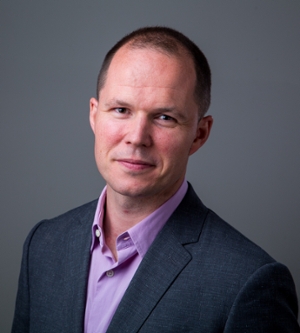
1) Why did you want to be a CAFEÉ fellow for Accessibility? What are you excited about?
I am a disabled person. I have low vision and identify as blind. It took me a long time to unlearn habits that I used to hide my disability, to make it look like I could see. A major part of me being able to accept that being blind informs all that I do has been what I have learnt from the research I do on decolonial activism and resistance in Latin America, and what I have learnt as an immigrant living in the United States about the urgent need for racial, economic, gender and sexual equality.
I have always participated in different initiatives that support DEI, but I had never had the chance to formally influence and develop programing. As a CAFE fellow, I am excited to create learning experiences for faculty that are informed by equity and collective action—ideals that guide social resistance and cultural reform in the Global South—and use disability to shed light on how we can incorporate different ways of knowing and being into our campus, classrooms and community engagement.
2) What do you hope to accomplish this year? Are there any particular goals? What do you think will be the legacy of your work will be?
I founded the UMKC Disability Alliance 4 years ago with the goal of creating community around disability. This was personal on my part as I was at a moment in my life when I needed support. I had been at UMKC for 7 years and had never met any faculty members who identified as disabled. Part of what I want to do this year is to continue to work on the visibility of disabled people and to continue to build community by sharing experiences produced by and for disabled people. I am creating, for example, a column in FAN called AccessRoo (LINK TO COLUMN) that will showcase this type of experience.
I also will be developing a program, with the assistance of many others, that will help faculty better understand the impact of inclusive practices, both in the classroom and across campus. It will help us as a community establish a common framework from which to engage with our students and colleagues. It will introduce basic knowledge about how to best accommodate disabled people, but it will also discuss how universal design and certain pedagogical practices support equity and the inclusion of all of the diverse groups that we see at UMKC.
Lastly, I will be working on a large-scale data collection initiative that will help us to develop an organic understanding of what we need access to as faculty, staff and students in order to be successful and to feel supported. This information can then be used to make decisions not only about classroom design and curriculum, but also about university-wide policies and budget proposals. I see the next year as an opportunity to dedicate serious energy to move these projects to fruition.
3) How does your research or role as faculty member inform your interest and work in Accessibility?
As an Associate Professor of Spanish and Associate Faculty member of Latinx and Latin American Studies and of Race, Ethnic and Gender Studies, I work regularly with the most recent critical research concerning contemporary power distribution across the Americas. This information informs my Graduate and Undergraduate level coursework and shapes the assessment strategies I develop to gauge our understanding of the intersectional dynamics that connect race, ethnicity, gender and sexuality, to notions of able-bodiedness, success and professionalism.
I am currently working on a book project that develops a disabled research methodology for the study of marginal social networks throughout Latin America. It focuses on how we move and engage with our objects of study and takes into account the funding we seek and the recent limitations and restrictions on travel. Moreover, it also considers how disability can help us better understand how objects circulate through colonial hierarchies and across racial stratification and class-based stratification. Mobility looks very different for disabled persons, and this effects the outcomes and the type of research we do. Producing knowledge from disabled experiences is important to me, and this has guided the way I have worked to support UMKC over the years.